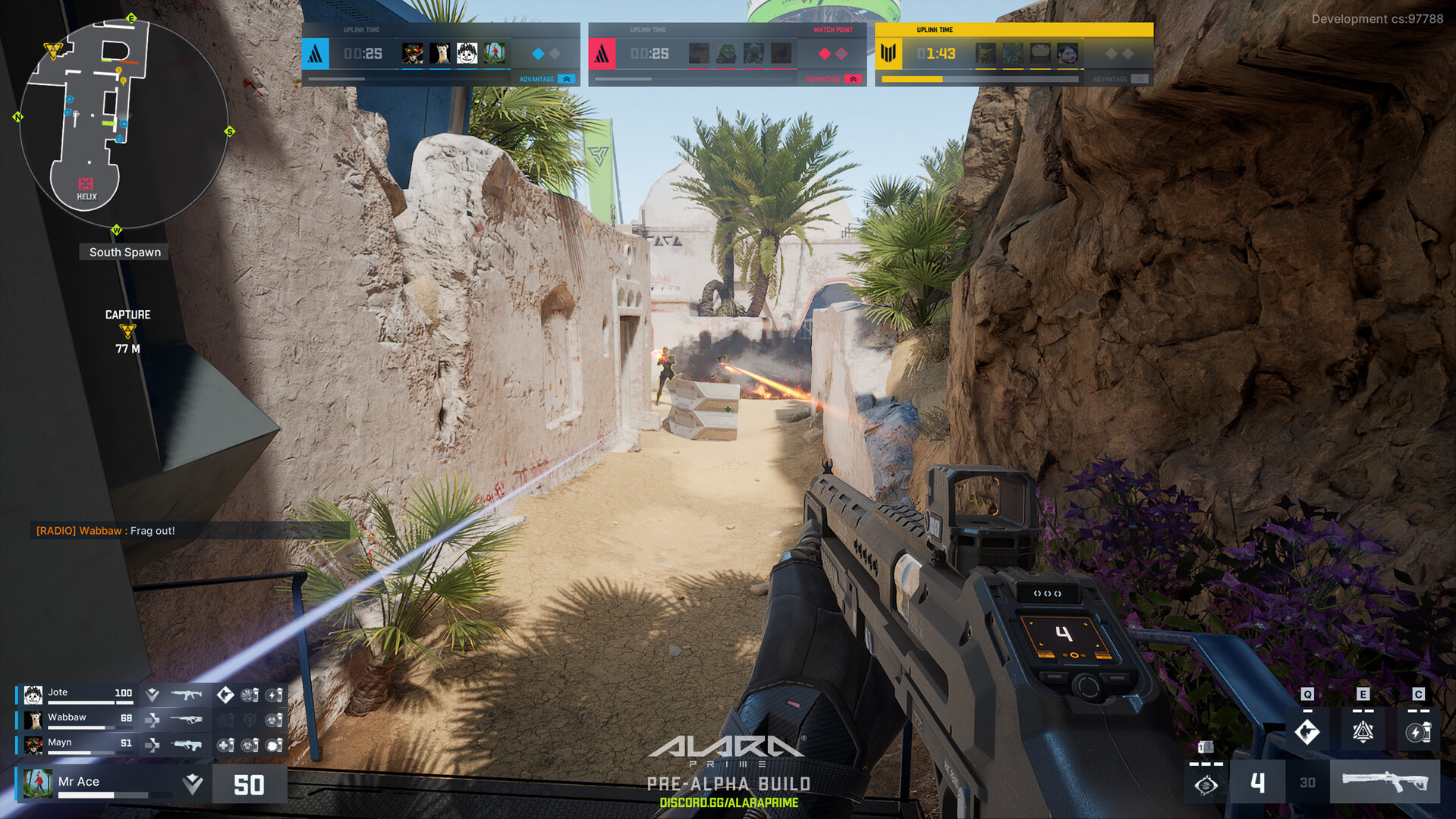About the game
ALARA Prime is a free-to-play, 4v4v4 competitive tactical first-person shooter. Choose your class, utilize an array of gadgets, dominate the game or play the other teams against each other.



My work:
I have been working as a Systems Programmer on Alara Prime at Fall Damage Studio Since December 2023.
I was able to learn a lot of new skills at Fall Damage, and was able to implement new systems from beginning to end.
My work on ALARA Prime included a wide variety of systems, such as:
- Creating and maintaining the Steam Store Integration
- Creating and developing a Playtest Performance Dashboard
- Reworking and improving Matchmaking using AccelByte.
My work on ALARA Prime included a wide variety of systems, such as:
- Creating and maintaining the Steam Store Integration
- Creating and developing a Playtest Performance Dashboard
- Reworking and improving Matchmaking using AccelByte.
More info about these below.
Steam Store Integration
The Steam Store integration was created to enable the purchase of virtual currencies, and some in-game items.
To make this possible our in-game store, back-end, and Steam needed to work together in a secure and consistent way. The client would handle prompting the purchase, ensuring the purchase is progressing correctly, and that all parts are in sync with each other. The Steam store was the purchase platform where the purchase would be completed and funds would be deducted. Our back-end would need to sync with steam to ensure all purchased items would be registered for the user.
Any potential issues would be handled by the respective system, to ensure a smooth purchasing experience.
Technologies used: Unreal Engine, C++, Steamworks SDK, AccelByte.
Playtest Performance Dashboard
The dashboard displayed performance values for all clients in a playtest session to give insight into potential performance issues.
To create this system we needed to collect all relevant raw data in the client, send it to our back-end system, which would then redirect it to our Snowflake DB. In the DB we used DBT to refine the data into a more user friendly format. Our dashboard site then used this refined data to display different performance values over the course of a playtest game.
Technologies used: C++, Python, Unreal Engine, DBT, Snowflake, AccelByte.
Matchmaking Improvements
When starting work on matchmaking, the system was not functioning correctly, after the team had switched from using PGOS to AccelByte as the back-end.
To get the system up to par, most parts of matchmaking had to be touched upon and improved.
To get the system up to par, most parts of matchmaking had to be touched upon and improved.
This included queuing, Connecting users to the correct Dedicated server, and handling parties. ALARA Prime also had a ready-up system, which ensured that all queuing parties were ready to play. Where we needed to handle all cases where a user would not accept the game.
Technologies used: C++, Unreal Engine, AccelByte.
Technologies used: C++, Unreal Engine, AccelByte.